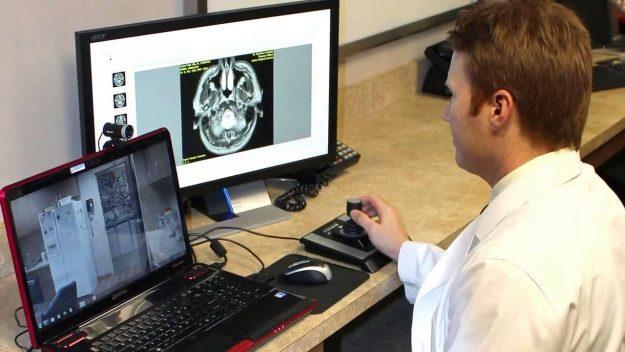New law allows Missouri schools to embrace telehealth tech services

Missouri schools are poised to expand their use of videoconferencing technology in delivering health services to students now that a new law is in place.
The law, signed by Gov. Jay Nixon in June and which took effect last week, lays out a series of provisions governing telehealth practices and stipulates that the state’s Medicaid program, MO HealthNet, start supporting schools looking to offer services like videoconferencing for physician consultations.
The new law is particularly meaningful for students with special needs — federal law requires districts to provide those students with services like speech therapy, physical therapy and mental health services, and the new statute specifically makes physicians specializing in those areas eligible to use telehealth techniques as part of the state’s Medicaid program.
The law also designates a child’s home, a school or a “child assessment center” as “originating sites” where patients are allowed to receive telehealth services.
Phyllis Wolfram, executive director of special programs for the Springfield, Missouri Public School District and president-elect for the Council of Administrators of Special Education, told EdScoop’s reporting team that the change could end up being “the greatest thing in the world” for special needs educators across Missouri.
“There is a shortage of speech language pathologists across the nation, and Missouri is no exception to that rule,” Wolfram said. “When we have a difficult time finding speech language therapists, we will be able to use this service as well as continue to bill Medicaid. We are a district that bills Medicaid and it is very beneficial to us, so to be able to offer that service when we need it will be very helpful.”
The Department of Labor’s Bureau of Labor Statistics estimates that Missouri has 3,330 speech therapy professionals practicing in Missouri as of May 2015, ranking the state 11th in the country and above the national average of 2,629 per state. But Wolfram cautions that outside of the state’s urban centers like Kansas City, St. Louis and Springfield, it can be quite difficult for rural districts to track down anyone able to offer those services.
“You can’t get blood out of a turnip,” Wolfram said. “They’re few and far between in the first place in some remote areas. School districts can post and post and post for positions, but if there’s no one applying and you can’t go get them, it’s just not there.”
Even once rural schools are able to find a physician willing to practice in their areas, Wolfram noted that it tended to prove quite costly for administrators to pay for those specialists.
“When you’re paying for some of those services, you’re not only paying for mileage, you’re paying for the time that someone spends in their car in some of the rural districts to provide those services,” Wolfram said. “So I think it can be a real cost savings in the long run with being able to bill and use these services and that service delivery model.”
[Read more: South Carolina gov. signs bill expanding how doctors can use telehealth techniques]
Indeed, she expects that the new law will help persuade more school districts to start embracing the state’s Medicaid program once they realize what a “money saver” these telehealth services will prove to be. Better yet, Wolfram expects that this shift will let schools take a more comprehensive approach to treating their special needs students.
“You can do [occupational therapy], [physical therapy], speech therapy and have all those services provided while consulting with a special ed teacher on site, as well as maybe providing those direct services and utilizing those care professionals to do that as well,” Wolfram said.
But she admits that the novelty of telehealth technology might make districts reticent to adopt it, at least until they get a chance to understand how it actually works.
“For people who have never seen it in action, they question it, because it’s different,” Wolfram said. “Technology’s changing daily and I think they have to get comfortable with that aspect of it and see it in action. And I have seen it in action. When you see how simple it can be with certain kids and the appropriate staff and appropriate training for that staff, it works very seamlessly.”
Wolfram said her district is certainly aware of the new statute and its potential impact, but she expects that other schools and even parents will start to embrace it “down the line.”
Given what it could mean for special needs students in the state, Wolfram hopes to speed that process as best she can.
“It’s still new, and I think that the best is yet to come,” Wolfram said. “I think as this begins to unfold for some of the school districts in our state that we will see some really nice services that are provided that maybe have been hard to come by in the past.”




